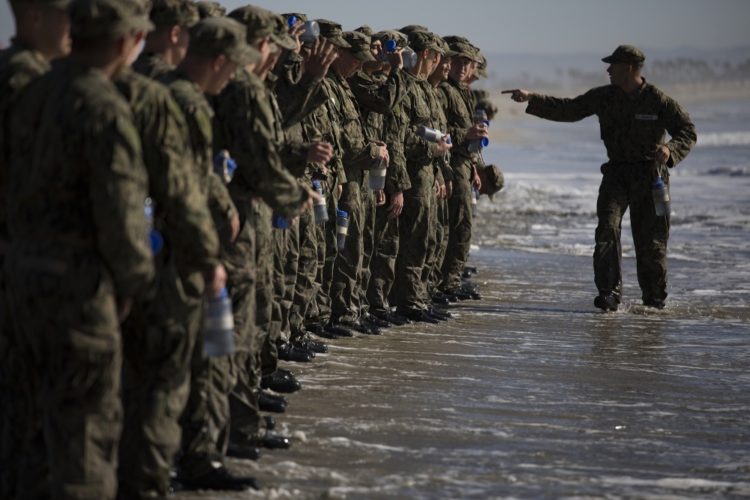The ongoing trial of Special Operations Chief Edward Gallagher over alleged war crimes is shedding light on the Naval Special Warfare (NSW) community and its cultural practices.
With the trial in full swing, more details are emerging about SEAL Team 7’s Alpha Platoon deployment in Iraq in 2017. Chief Gallagher’s arrest seems to have originated by the allegation of a special warfare operator first class (SO1), who has to remain anonymous for Operational Security (OPSEC) reasons. The SO1 and some fellow Alpha Platoon SEALs, including the Assistant Officer in Charge (AOIC), a lieutenant junior grade, first reached out to their chain of command after the platoon had rotated back to the U.S. over Chief Gallagher’s actions during their combat tour. They spoke to a SEAL master chief, who in return confronted Chief Gallagher and encouraged him to address the situation with his men. It quickly became evident, however, that the rift was too deep to be mended. The master chief then reached out to his chain of command, and the legal process began.
The SEALs told Naval Criminal Investigation Service (NCIS) investigators that they repeatedly tried to stop their platoon chief from killing innocent civilians, often using quite industrious ways to achieve this. According to the SO1, the platoon’s snipers “began shooting warning shots at any civilians they saw on the battlefield so that the civilians would run away and [Chief Gallagher] could not kill them.”
Earlier in the trial, seven Alpha Platoon SEALs were granted immunity so they would testify against Chief Gallagher.
On another note, the presiding judge, Captain Aaron Rugh (USN), ruled that neither reenlisting over the dead body of an ISIS fighter nor operating an unmanned aerial vehicle (UAV) over the same corpse violated the Uniform Code of Military Justice (UCMJ). Chief Gallagher has been accused under Article 134 of the two actions. Now, however, the prosecution’s case has taken a considerable hit, but the main and more serious accusations persist. More specifically, Chief Gallagher is also accused of murdering a captured teenage ISIS fighter by stabbing him in the neck and body with a hunting knife, shooting at unarmed civilians, obstructing justice by encouraging his SEAL platoon members not to disclose his actions on three separate occasions, and also abusing banned controlled substances.
Chief Gallagher’s Article 134 exoneration could spell good news for his platoon commander, Lieutenant Jacob X. “Jake” Portier, who is accused of trying to cover up for his chief and illegally withholding information from his chain of command.
Lt. Portier’s civilian defense attorney, Jeremiah J. Sullivan III, said to the Navy Times: “It is honorable for a Navy SEAL to reenlist on the battlefield, the same battlefield where he was willing to sacrifice his own life to protect our nation.” Although his statement is quite reasonable, it ignores the specific circumstances of the reenlistment ceremony under question, namely, performing the process over a dead body.
Already have an account? Sign In
Two ways to continue to read this article.
Subscribe
$1.99
every 4 weeks
- Unlimited access to all articles
- Support independent journalism
- Ad-free reading experience
Subscribe Now
Recurring Monthly. Cancel Anytime.











COMMENTS